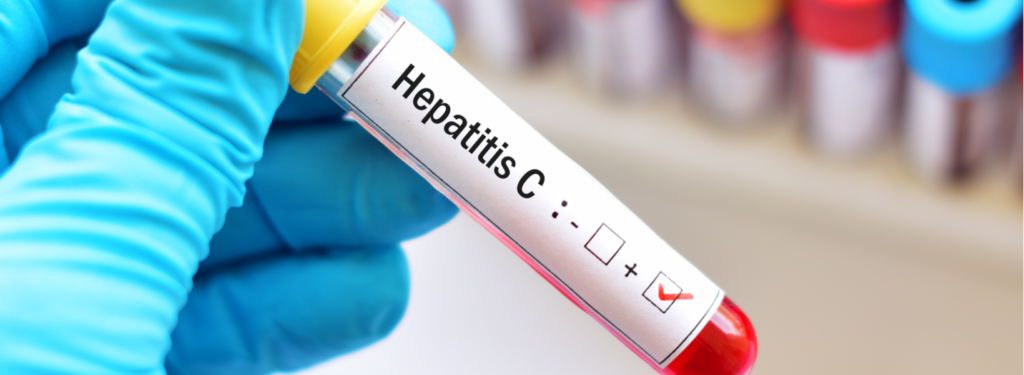
A team of researchers at Glasgow Caledonian University have been investigating whether treating people who inject drugs can reduce the spread of infection.
An estimated 200,000 people in the UK have been infected with the Hepatitis C Virus (HCV), which can cause liver disease, cancer and death. Most HCV infections in the UK are in people who inject drugs. In Scotland, there are an estimated 21,000 people living with Hepatitis C.

Eliminate Hepatitis C by 2024
Researchers at Glasgow Caledonian University have been working collaboratively with Health Protection Scotland (HPS) to inform Scotland’s strategy to eliminate Hepatitis C by 2024.
The project led by Professors Sharon Hutchinson and David Goldberg (Pictured left) evaluated the impact of the Scottish Government’s action plan on Hepatitis C and produced evidence to inform this new strategy on elimination. The team hypothesise that if HCV treatment is increased sufficiently, eventually the virus could be eliminated.
The Scottish Government has announced plans to treat more people annually for Hepatitis C which will see Scotland effectively eliminate the condition by 2024, six years ahead of the World Health Organisation’s expectations.
Public Health Minister
Public Health Minister Joe FitzPatrick has committed to increase the number of people treated for the potentially fatal blood-borne virus to at least 3,000 annually from 2020-21.
By increasing the number of people treated annually, Mr FitzPatrick said NHS Scotland will be able to effectively eliminate the condition by 2024.
Professor Hutchinson (Pictured right) said: “I’m delighted that the Scottish Government has endorsed the plan to further scale-up therapy in Scotland, to help achieve the elimination of Hepatitis C as a public health concern by the end of 2024, ahead of the World Health Organisation’s global target of 2030.
“Serious challenges still remain to achieving that goal, but Scotland is well placed to take advantage of the Hepatitis C therapeutic revolution with its advanced service infrastructure and committed workforce.”


Award-winning
In April 2022, the University’s Sexual Health and Blood Borne Viruses research group won a top international award for their hepatitis C prevention research in people who inject drugs.
They won the 2021 Emerald Publishing International Real Impact Award – Mobilising Research into Action category – for demonstrating impactful results through incredible collaborative working.
The Real Impact Awards celebrate researchers who go above and beyond to make a difference to their communities or wider society.
Public Health Minister Maree Todd congratulated the team on their achievement and for making a huge difference in blood borne virus services.
The team work in close partnership with the Scottish Government, Public Health Scotland, the European Centre for Disease Prevention and Control, the World Health Organization, the NHS and the third sector.